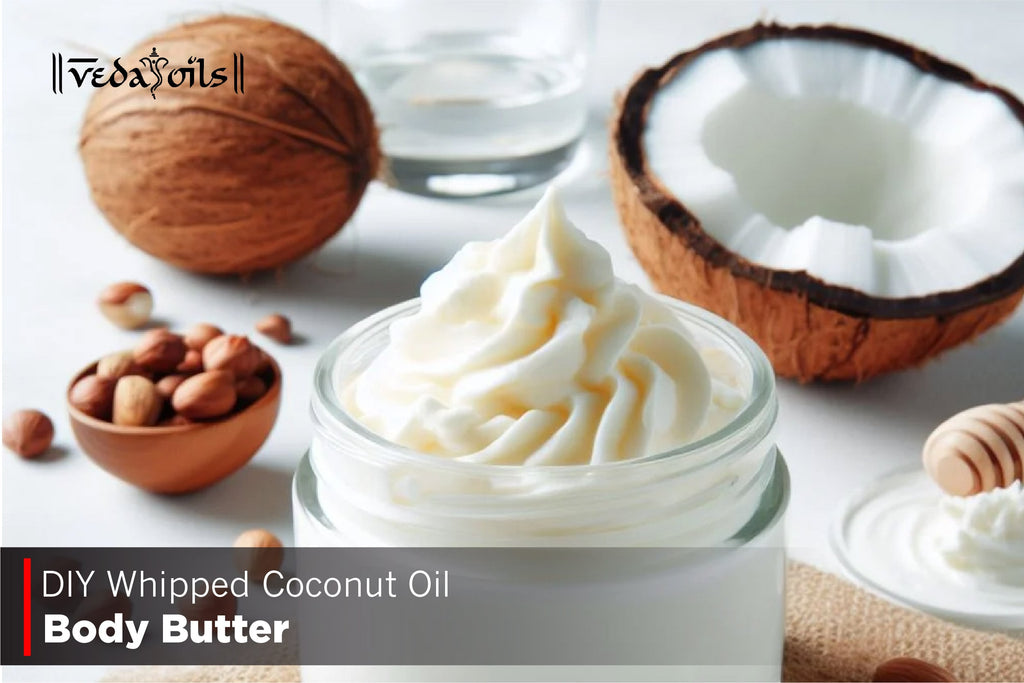Walnut Oil Vs. Peanut Oil - Which One Is Better ?
For decades, both oils have been included in a variety of cosmetics uses. But which one is healthier for your skin? Walnut oil is renowned for its velvety texture and high vitamin and mineral content. Due to its hydrating and anti-aging characteristics, it is frequently utilized in skin care products.

On the other hand, due to its light texture and easy absorption, peanut oil is frequently utilized in massage oils. The distinctions between these two oils, their advantages for various skin types, and how to use them in your skincare routine will all be covered in this blog. This blog will offer helpful tips on selecting the best oil for your skin, whether you're a fan of skincare or looking for natural alternatives to manufactured goods.
What Is Peanut Oil?
Peanut, groundnut, or arachis oil is a vegetable oil derived from peanuts. When prepared using roasted peanuts, the oil has a greater peanut flavor and scent than its typical mild or neutral flavor. Besides lowering redness and moisturizing your magnificent hair strands, peanut oil can assist in soothing mild skin irritations.
What Is Walnut Oil?
Walnut oil is an oil extracted from walnuts, Juglans regia. In addition to saturated fats, the oil contains monounsaturated and polyunsaturated fatty acids. Walnut oil has anti-aging properties and is fantastic for smoothing out wrinkles. Vitamins from walnut oil help to stop hair loss as well.
Difference Between Peanut Oil And Walnut Oil
People have used peanut and walnut oil for millennia to heal their skin and treat hair problems. These oils are good for treating and enhancing the general condition of your skin and scalp. Let's examine the distinctions between peanut and walnut oil to determine which one you should pick.
Peanut Oil Vs. Walnut Oil For Hair
Both oils provide incredible benefits for your hair, including relief from scalp infections and developing softer, thicker, and shinier locks. Find out which is better for hair: peanut oil or walnut oil.

Peanut Oil For Hair
From ancient times, people have used peanut oil, a light, non-greasy oil produced from peanuts, to treat their hair. Due to its abundance of vitamin E and vital fatty acids, it is a fantastic hair moisturizer. Your hair can be made to look and feel better by using peanut oil.
Walnut oil For Hair
Walnut oil, a more viscous oil obtained from walnuts, has significant omega-3 fatty acids and antioxidants, which help grow hair and prevent hair loss. Many advantages of walnut oil for hair care include its ability to strengthen and nourish hair, encourage growth, and stop hair loss.
Peanut Oil Vs. Walnut Oil For Skin
See how walnut oil and peanut oil can improve your skin. Good skin is a sign of a healthy body and boosts your self-confidence.

Peanut Oil For Skin
As a natural remedy for redness and itchy skin, peanut oil is a great choice due to its anti-inflammatory characteristics. Vitamin E's antioxidant properties aid in the battle against aging free radicals. Because it is a rich emollient, peanut oil can condition and hydrate skin, giving it a softer, smoother, and more radiant appearance and feel.
Walnut oil For Skin
Given the dense viscosity and anti-aging properties, walnut oil can help fine wrinkles gradually disappear. It has a lot of vitamin E, which has been demonstrated to deeply moisturize the skin and reduce signs of aging, as well as vitamin B and antioxidants. Regular use of this oil will help you look younger.
Peanut Oil Vs. Walnut Oil- Which Is Better?
Given its calming and soothing characteristics, peanut oil might be better for dry, irritated, or sensitive skin. Peanut oil is a thin, quickly absorbed oil that moisturizes skin and hair. A great antioxidant, peanut oil's high vitamin E concentration shields skin and hair from UV rays and other environmental stressors that might harm them.
While Also, because it has a calming effect, peanut oil is frequently used in massage oils and can help to soothe sensitive skin. On the other hand, walnut oil may be a great option to enhance your hair's health and texture. Omega-3 fatty acids, antioxidants, and additional vitamins and minerals are abundant in walnut oil, a heavier oil.

walnut oil is very beneficial for enhancing the health of your hair because it prevents hair loss, encourages hair development, and fortifies your hair strands. Also, the anti-inflammatory qualities of walnut oil can help lessen skin inflammation and redness. Peanut oil is lighter and more nourishing for your skin and hair than walnut oil, which is denser. Peanut oil is also easier to get and less expensive, which makes it unquestionably superior.
Conclusion
In conclusion, walnut and peanut oils can be added to daily skin care and hair care routine, each with special advantages. Your needs for your skin and hair ultimately determine which of the two oils you should use. Your oils' purity is the most crucial component. VedaOils offers the best and purest walnut and peanut oil. Visit VedaOIls.com to receive tremendous discounts on your first purchase.
Frequently Asked Questions
Q. Is Walnut Oil Or Peanut Oil Better For You?
Ans. Walnut oil is higher in polyunsaturated fat and vitamin K than peanut oil, which is higher in monounsaturated fat and vitamin E. These oils work wonders to keep you looking young and healthy. Depending on its accessibility and your needs, you can choose either.
Q. Which Is Better, Peanut Oil Or Walnut Oil?
Ans. Due to its higher nutritional content and lower price, peanut oil is preferable to walnut oil for most individuals. Moreover, peanut oil is thin and does not leave your skin feeling oily.
You May Also Like:
Buy Products
Related Articles
Disclaimer :- This article is intended for informational and educational purposes only and should not be considered a substitute for professional medical advice. For specific health concerns or treatment, please consult your personal physician. The article's editor, writer, and VedaOils organization do not assume any responsibility for any health outcomes resulting from the information provided. Readers are strongly encouraged to seek advice from their physician before acting on any recommendations made in these articles.

















 Sign in
Sign in Register now
Register now My Reward Points
My Reward Points









